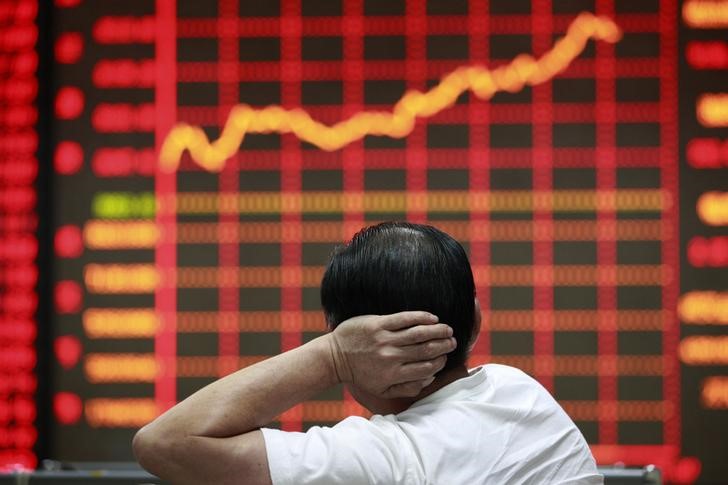Investing.com – Asian stock markets were mixed on early morning trade on Tuesday, as trade jitters between China and the U.S. remains in focus and experts forecast that emerging market currencies might fall further.
The U.S. stock market seems to have held on to an upbeat sentiment. The S&P 500 closed up 0.19% on Monday and the Nasdaq Composite edged up 0.27%. The Dow Jones Industrial Average bucked the trend with a 0.23% drop.
Asian stock markets, however, closed the day mostly in the red, with markets in China and Hong Kong particularly hard hit. The Shanghai Composite ended down by 1.21%, the Shenzhen Componentfalling 1.97% and the Hang Seng Index sliding by 1.33%.
The dark mood was driven by new threats by U.S. President Donald Trump’s threat on Friday to impose tariffs on an additional $267 billion worth of Chinese imports, on top of $200 billion that have already gone through public consultations and could be imposed at any time. Those two sets of tariffs, added to other tariffs already imposed, would result in tariffs to virtually all Chinese exports to the U.S.
On Tuesday, markets started the day mixed. The Shanghai Composite Index was down 0.13% as of 9:55PM ET (01:54 GMT) while the Shenzhen Component Index was down 0.38%. In Hong Kong, the Hang Seng Index was down 0.13%.
Elsewhere, South Korea’s Kospi was down 0.14% but Japan’s Nikkei 225 was up 0.93%. the S&P ASX 200 in Australia was up 0.44%.
Investors across Asia remain on tenterhooks, not only about the potential for a vastly expanded and disruptive trade war between the U.S. and China but also about the fears that one of the several currency crises underway in emerging markets could spread.
Seven emerging markets, including Turkey, Argentina and Brazil, are going through significant currency pain. Goldman Sachs Group (NYSE:GS) signaled that those currencies have further to fall, despite having plummeted already.
“Given the latest comments from Trump, investors are likely to see the potential for further depreciation in EM currencies with the trade war cranking up yet another notch,” said Rakuten Securities Australia Analyst Nick Twidale.
Argentina’s central bank is set to announce another decision on interest rates on Tuesday. In late August, it boosted rates to 60% and pledged not to cut them at least until December.
Japanese Prime Minister Shinzo Abe and Russian President Vladimir Putin held talks on Monday to conclude a peace treaty that the two countries have not signed since World War II and to work together on economic activities on islands both countries claim off the Japan’s Hokkaido main island.
